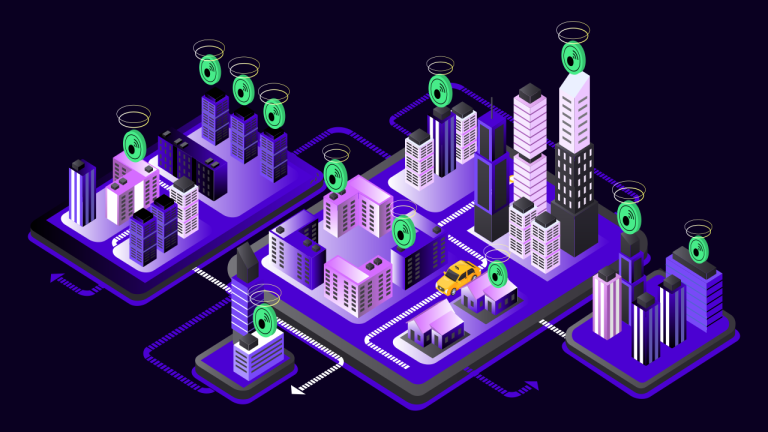Web3 Telecommunications Startup Wayru Launches Decentralized Internet Network

Press Release: Web3 telecommunications startup Wayru.io is launching its decentralized Internet hotspot network & Genesis hardware devices to usher in a new era of connectivity.
9th August 2022, Miami – The Wayru ecosystem enables anyone to buy its Hotspot Pool Tokens to support the network, or become an even more integral part of the Wayru infrastructure by owning one of the first 1,000 Genesis hardware devices.
The Lack of Connectivity
In 2011 the United Nations released a report declaring that internet access was a human right, citing it as a key means by which individuals can exercise their right to freedom and expression. Despite this seemingly huge step forwards to a more connected world occurring over 10 years ago, only 35% of people in underdeveloped nations have access to the internet.
This lack of connectivity in developing nations, largely due to the inaction of a few established telecommunication companies, has opened the door to new innovators like Wayru to pioneer its unique, blockchain-backed solution, and address the long-standing issue.
What is Wayru?Backed by Borderless, the Algorand Foundation & other Industry investors, Wayru is an emerging Web3 telecommunications startup that has developed a radical new globally-compatible Hotspot network and a hardware device (known as Genesis) for individuals to share their internet connection in exchange for cryptocurrency.
The Wayru sharing economy model provides the basic framework for communities, entrepreneurs, and small businesses to build, own & operate Internet networks independently. The network will focus heavily on eliminating the significant operational costs plagued by centralized internet networks. Wayru handles telecommunications, processing, and other transactions on the network using Algorand’s Blockchain.
Wayru Founder and CEO Charvel Chedraui stated that:
“The Internet has changed the world more than anything else in history, and providing access to everyone in the world can bring collective changes so massive that are very hard to predict. A decentralized version of how Internet access is distributed today would allow people to achieve digital freedom, economic independence, and community development.”
Wayru to Deploy Hotspot PoolsWayru Hotspot pools are a hybrid network of Hotspots with cutting-edge radio fiber-quality mesh technologies. Starting at first in the heavily populated but under-connected Latin American cities of Quito and Guayaquil, Wayru will deploy Hotspot Pools across businesses, homes, and public areas for millions of people to use.
With no setup cost and a free first month of service for early adopters, the Hotspot pools are the easiest way for individuals to invest in the infrastructure and start earning the platform’s native $WRU token.
Each pool contains a minimum of 1,000 Hotspots. The pools are tokenized for anyone to invest in by buying Pool Tokens, and the number of ‘pool tokens’ in each pool varies with the pool’s location and the number of Hotspots within it. All rewards are equally distributed among holders, so the more tokens you hold the more rewards you earn.
Pool Token RewardsFor every $100 in revenue generated from using the Network, roughly $40 keeps the Network running, leaving a $60 reward. This is split between Wayru and Pool Token Holders, with Holders receiving exactly two-thirds and Wayru one-third. The first batch will have 10,000 Pool tokens available priced at $50 USD per token. Pool tokens can be bought using WRU, ALGO, USDC, or USD
Genesis DeviceThe Wayru Genesis device acts as a WiFi hub that lets people share their internet connection for crypto rewards. The devices will go on sale today, Tuesday, August 9th, and are expected to ship in late Q3 2022. The first round of devices will also come with an early-bird reward of between $50.00 and $100.00 worth of WRU, so there is no better time to get in on the ground floor and be a part of the next big revolution of global connectivity.
WRU TokenThe $WRU token is a proprietary token running on Algorands blockchain. The full max supply of 10 Billion tokens will be minted as genesis but locked to the network until network usable commences. The token will be distributed as rewards for Hotspot pool token owners, Hotspot operators, and stakers, for their contribution to the network. Just 1% (100 million) of the token supply will be released at the public sale which will take place sometime early 2023, with the remainder dispersed over years as rewards.
The Wayru revolution will kick off on Tuesday the 9th of August with a presale that will offer the first 1,000 Genesis hardware devices and Hotspot Pool tokens to the world. With two very enterprising options available, and a huge gap in the market, the Wayru presale offers a great opportunity for anyone to be a part of the new era of global connectivity.
Media Contact
Contact Name: Charvel Chedraui
Contact Email: [email protected]
Wayru Socials
Presale | Twitter | Discord
Wayru.io is the source of this content. This Press Release is for informational purposes only. The information does not constitute investment advice or an offer to invest.
Related News





